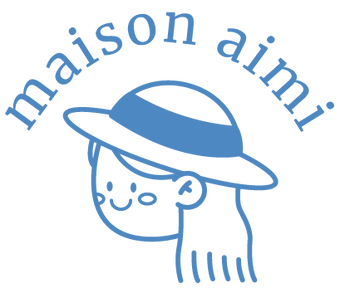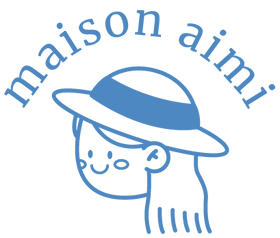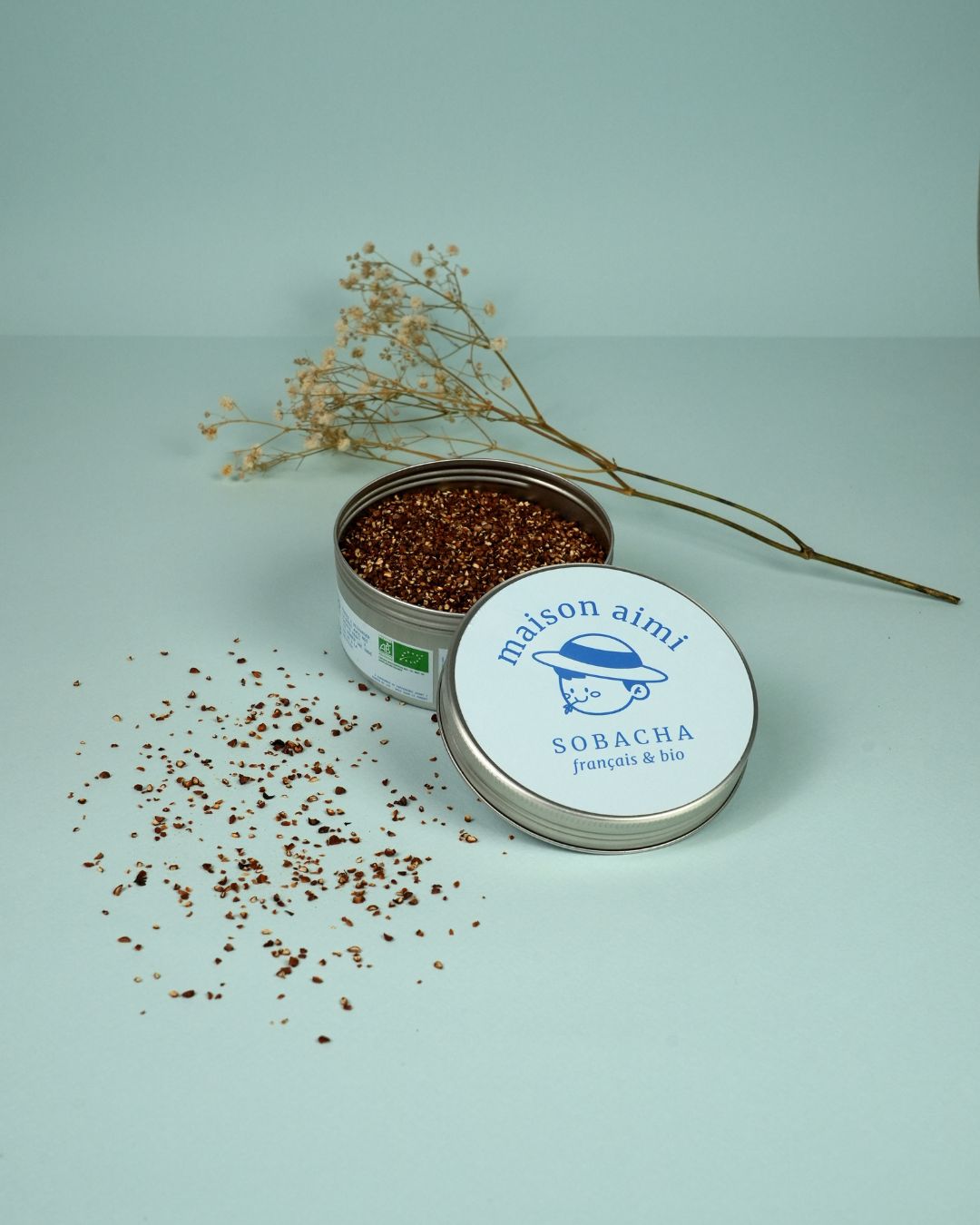How much caffeine do you consume daily?

Caffeine is, for many of us, an ally in our hectic lives. It is what allows us to get to work, to concentrate or to have enough energy to move our projects forward. However, overconsumption of caffeine can be harmful to mental health (stress, anxiety) and physical health (headaches, tachycardia, etc.). It is also possible that you regularly experience these inconveniences and that you are looking to limit them, perhaps by reducing your daily caffeine consumption. And to do this, you need to know how many mg of caffeine you consume on a daily basis . Specializing in healthy drinks from Japan, the Maison Aimi brand has become interested in developing caffeine-free drinks. It is in this context that we invite you to discover the quantities of caffeine found in your favorite drinks in order to help you determine how much caffeine you consume on a daily basis .
Summary
But first: what is caffeine and where is it found?How much caffeine in coffee?
How much caffeine is in energy drinks?
Is there caffeine in other drinks and foods?
Amount of caffeine per drink: summary
How much caffeine do you consume daily?
Are you consuming too much caffeine on a daily basis?
What if you cut down on your caffeine intake?
But first: what is caffeine and where is it found?
Discovered in 1819 by the German chemist Friedlieb Ferdinand Runge, caffeine is a molecule extracted from the seeds of the coffee plant. It is called “kaffein”, or “caffeine” in French.
Caffeine acts on our body, on the one hand by blocking the effects of adenosine, a neurotransmitter that relaxes the brain and causes the feeling of fatigue, and on the other hand by boosting adrenaline levels in the blood, which promotes a state of excitement, alertness and concentration.
Beyond these positive effects, however, excess caffeine can lead to negative effects, such as headaches, difficulty falling asleep, stress and anxiety, or even heart problems such as tachycardia. Finally, if the notion of caffeine addiction is to be qualified at the medical level, many people feel like they are dependent on this molecule.
Although it is often associated with coffee by name, caffeine can be found in many drinks and foods. It is then, most often, called differently. Caffeine is found in tea (the molecule is called theine), in mate (it is called mateine), but also in many energy drinks. This is why it is possible that you consume much more caffeine than you think and this is why we have decided to offer you this article.
How much caffeine in coffee?
The fact that there is caffeine in coffee is no surprise to anyone. But did you know that there can be huge differences between the different coffees you drink? It all depends on the extraction method. Let’s take a look!
- Filtered coffee (one cup, 235 mL): 95 to 165 mg caffeine
- Cold brew coffee (one cup, 235 mL): 75 to 125 mg caffeine
- Decaffeinated (one cup, 235 mL): 2 to 12 mg caffeine
- Espresso (30 mL): 47 to 75 mg of caffeine
- Decaffeinated espresso (30 mL): 0 to 15 mg caffeine
- Instant (235 mL): 27 to 173 mg caffeine
- Café latte (235 mL): 63 to 175 mg caffeine
💡 Did you know? The slower the filtration method, the higher the caffeine content in the coffee! In fact, the longer the water remains in contact with the coffee, the more caffeine permeates the liquid. This is why filter coffee is the most caffeinated.
How much caffeine is in different teas?
Tea contains caffeine – it is called theine. The theine content depends on the type of tea chosen, the brewing temperature and the brewing time.
- Herbal infusion (one cup, 300 mL): 0 mg caffeine
- Cereal tea (mugicha, sobacha): 0 mg caffeine
- Red tea or rooibos (one cup, 300 mL): 0 mg caffeine
- Mate (one cup, 300 mL): 30 mg caffeine
- Black tea (one cup, 300 mL): 52 to 77 mg caffeine
- Green tea (one cup, 300 mL): 18 to 142 mg of caffeine (this is the tea with the most variable theine dosage!)
- White tea (one cup, 300 mL): 115 to 146 mg caffeine
- Matcha latte (one cup, 100 mL + milk): 50 mg of caffeine (for 1.5g of matcha) (matcha is more concentrated in caffeine because the whole leaf is consumed)
How much caffeine is in energy drinks?
Energy drinks are also important sources of caffeine. In these drinks, caffeine is most often combined with minerals, vitamins, taurine (for Red Bull and Monster Energy) and sugar to boost its effects.
- Coke (one can, 330 mL): 33 mg caffeine
- Coca Cola Zero (one can, 330 mL): 33 mg caffeine
- Red Bull (one can, 250 mL): 80 mg caffeine
- Monster Energy (one can, 330 mL): 120 mg caffeine
Is there caffeine in other drinks and foods?
While caffeine is most often found in beverages, some solid foods also contain caffeine. This is the case for foods made from tea or coffee (matcha pastries, coffee ice cream) but also foods containing… chocolate! And yes, cocoa beans contain caffeine!
- Dark chocolate 70% (one bar, 100g): 100 to 200 mg of caffeine
Furthermore, the food that contains the most caffeine is the Guarana berry: it contains 4 to 6 times more than coffee! However, this ingredient originating from Latin America is relatively unknown in France and is mainly present in the form of food supplements (powders, supplements, capsules).
- Guarana powder (one teaspoon, 4 g): 138 mg caffeine
Amount of caffeine per drink: summary
| Food type | Quantity (in mL/g) | Caffeine (in mg) |
|---|---|---|
| Filter coffee | 235 | 95 to 165 |
| Cold brew coffee | 235 | 75 to 125 |
| Decaffeinated filter coffee | 235 | 2 to 12 |
| Espresso | 30 | 47 to 75 |
| Decaffeinated espresso | 30 | 0 to 15 |
| Instant | 235 | 27 to 173 |
| Coffee latte | 235 | 63 to 175 |
| Herbal infusion | 300 | 0 |
| Cereal tea | 300 | 0 |
| Red tea or rooibos | 300 | 0 |
| Mate | 300 | 30 |
| Black tea | 300 | 52 to 77 |
| Green tea | 300 | 18 to 142 |
| White tea | 300 | 115 to 146 |
| Matcha latte | 300 | 50 |
| Coca | 330 | 33 |
| Diet Coke | 330 | 33 |
| Red Bull | 250 | 80 |
| Monster Energy | 330 | 120 |
| Dark chocolate | 100g | 100 to 200 |
| Guarana powder | 4g | 138 |
How much caffeine do you consume daily?
Because all of the above numbers are ranges and because there are dozens of different ways to consume caffeine on a daily basis, we've come up with a few scenarios to help you visualize your caffeine consumption. So, how much do you consume per day?
Coffee addict day at 300 mg of caffeine
A filter coffee first thing in the morning – 120 mg of caffeine
A filter coffee when you arrive at the office – 120 mg of caffeine
An espresso at lunchtime for dessert – 60 mg of caffeine
Coffee addict+ day at 453 mg of caffeine
A filter coffee first thing in the morning – 120 mg of caffeine
A filter coffee when you arrive at the office – 120 mg of caffeine
An espresso at lunchtime for dessert – 60 mg of caffeine
A filter coffee in the afternoon on the way back to the office – 120 mg of caffeine
A diet coke for the last hour – 33 mg caffeine
🔥 The daily dose limit recommended by the European Food Safety Agency is 400 mg of caffeine.
Tea addict day at 262.5 mg of caffeine
Black tea upon waking – 65 mg of caffeine
Green tea in the morning – 80 mg of caffeine
Green tea in the afternoon – 80 mg caffeine
A rooibos in the evening – 0 mg of caffeine
1/4 bar of dark chocolate – 37.5 mg of caffeine
Japanese Drink Day with 50 mg of caffeine
A matcha latte first thing in the morning – 50 mg of caffeine
A mugicha in the morning – 0 mg caffeine
An afternoon mugicha latte – 0 mg caffeine
Are you consuming too much caffeine on a daily basis?
According to the European Food Safety Authority (EFSA), a healthy adult should not exceed 400 mg of caffeine per day – 300 mg for pregnant and breastfeeding women . It also mentions a limit of 200 mg of caffeine to be ingested every two hours to avoid a caffeine spike in the blood, which can cause significant negative effects.
These numbers and limits are theoretical: you can be sensitive to caffeine at the slightest ingested quantity, while other people, more accustomed or less sensitive, can consume much more without feeling the effects!
Generally, you will be considered to be consuming too much caffeine from the moment you feel its negative effects on you: headaches, stress and anxiety, difficulty falling asleep, heart palpitations, feeling of withdrawal when you stop consuming it... If these sensations resonate with you, it may be time to consider limiting your daily caffeine intake.
What if you cut down on your caffeine intake?
Do you realize while reading these lines that you consume too much caffeine on a daily basis? First of all, know that you can simply reduce your caffeine consumption, without stopping it: it is therefore not necessary to stop coffee - unless other considerations, such as ecological and ethical considerations, motivate you.
Our recommendation is to gradually reduce your consumption, in particular by replacing some cups of coffee / drinks containing caffeine with others that do not contain it. To do this, you can turn to decaffeinated drinks or drinks that do not naturally contain caffeine. Among the latter, we invite you to discover cereal teas, which are stronger in taste than herbal teas but without caffeine:
- Buckwheat tea, called sobacha in Japan, is particularly known and appreciated in Asia (Korea, China and Japan). The grains are hulled and roasted which gives the infusion a taste of caramelized hazelnuts. Inspired by Japan, our sobacha is 100% produced in France 🇫🇷: the buckwheat is produced in France according to the criteria of organic farming 🌱 (AB label) before being hulled, roasted and packaged by a craftsman in Ariège.
- Barley tea, also called mugicha in Japan, is a popular drink in Japan and Asia, but less well-known in France. However, it is gradually gaining the interest of the French because it has the advantage of being able to be produced 100% in France and having a powerful taste. Barley tea can also be prepared like coffee, in an Italian-style coffee maker for a more pronounced taste (Italians also consume it under the name caffè d'orzo). Just like our sobacha, our mugicha is 100% produced in France 🇫🇷: from organic farming 🌱 (AB label), it is roasted in the southwest of France then crushed and packaged in our workshop in Yvelines.
If we think directly of coffee when we talk about caffeine consumption, it is important to realize that caffeine is found in many drinks and foods. While taking caffeine is interesting on a daily basis, especially to increase productivity, over-consuming it can be harmful. It is therefore important to be aware of your daily consumption to regulate the doses ingested and thus limit the impacts on your health, in the short and medium-long term.


